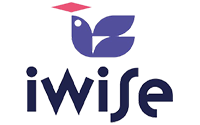The mission of the iWISE Biology Category is to engage students in creative exercises that demonstrate their scientific knowledge and to connect them with the scientific community. It provides students with an opportunity to apply scientific concepts through creative projects and to learn from and interact with professionals in the field.
Based on the mission of the iWISE Biology Category, its objectives focus on fostering creativity, applying scientific knowledge, and connecting students to the broader scientific community. The following specific objectives support this mission:
– Encourage creative problem-solving for global environmental issues, allowing students to develop and propose innovative solutions.
– Demonstrate the application of knowledge by challenging students to use scientific information in creative exercises, rather than just reciting facts.
– Assess creative interpretation and synthesis, encouraging students to draw unique and meaningful conclusions from known facts and present them creatively.
– Develop fundamental scientific skills, such as critical thinking, research, investigation, and analysis.
– Promote an understanding of the scientific method by having students ask and refine questions, create hypotheses, and conduct investigations to test them.
– Cultivate essential soft skills like initiative, independent work, and collaboration, which are critical for success in scientific fields.
– Enhance scientific communication, including both written and oral skills, to effectively convey scientific findings to diverse audiences.
– Provide a platform for interaction between students and the wider scientific community, including judges and other participants.
– Foster international collaboration by bringing together like-minded students from around the world to exchange ideas.
– Raise awareness of biology’s societal impact by encouraging students to consider the ethical and moral implications of their work and how their research can benefit humanity.
– Showcase global talent, inspiring students of all backgrounds to pursue their creativity and innovative ideas in the biological sciences.
Young scientists can explore the Biology Category through various subcategories:
Biomedical & Medical Science
Diseases & Illnesses
Health Care
Human Genetics
Human Physiology
Microbiology
Pharmacology
Sports Science
Veterinary Sciences
Food Science
- Click on the Registration Tab
- Select one of the Virtual Finals
- Fill in your details.
- Fill in your selected category details on the corresponding form.
- Select your available time for the Judging process.
- Submit your zoom judging session.
- Proceed to payment.
- Complete your submission.
For the iWISE Biology Category, the evaluation criteria focus on a project’s scientific rigor, originality, and the clarity of its presentation. Judging is conducted on both the submitted work (the project, report, and visual display) and the student’s ability to discuss and explain their work during an interview.
Scientific thought and investigation
This category assesses the core scientific merit of the project, including the logic and skill used in the investigation.
– Problem statement: Is the research question or problem clearly and unambiguously defined?
– Design and methodology: Was the research plan sound? Were variables and controls clearly identified and appropriately used?
– Data collection and analysis: Was the data collection systematic? Were appropriate mathematical and statistical methods applied?
– Thoroughness: How completely was the project covered? Are the conclusions supported by sufficient data and replication? Judges will look at project notes and record books to help determine this.
– Understanding: Does the student demonstrate a deep understanding of the scientific principles related to their project, rather than simply recalling facts?
– Limitations: Does the student recognize and understand the limitations of their own data and experimental design?
Creativity and originality
This category measures how innovatively the student approached their project.
– Originality: Is the project, problem, or approach unique? Does it present a new way of solving a problem? Judges seek to distinguish genuine ingenuity from “gadgeteering”.
– Interpretation: Does the student draw original, creative, or insightful conclusions from known facts and data?
– Presentation: Is the project or the explanation of the concept presented in a unique or creative way?
Communication and presentation
This category evaluates the clarity and effectiveness of the student’s communication of their work.
– Written materials: Are the project report and other written materials well-organized, clear, and easy to understand? Are sources properly cited?
– Visual display: Is the display clear, logical, and easy to read? Do graphs and charts effectively present the project’s data?
– Interview: Is the student able to clearly and concisely discuss their project? Do they show enthusiasm and confidently answer questions from the judges?
– Scientific context: Does the student understand how their project relates to other research or its real-world applications?
Overall impact
This is a holistic assessment of the project and its creator.
– Societal relevance: Does the student recognize the potential impact of their project on science, society, or the economy?
– Independent work: Was the student the primary driver of the project, or was there an inappropriate level of adult assistance? The project’s complexity should be appropriate for the student’s age and skill level.
– Future research: Does the student have a clear idea of what further research could build upon their findings?
Requirements for Virtual Finals:
Participants must out together the following documents for their STEM Projects:
Project Abstract
Project Portfolio
PowerPoint Presentation
No theme for this category.
Group submission is up to 3 participants
Requirements for Global Finals:
Participants must put together the following documents for their STEM Projects:
Project Abstract
Project Research Plan
Project Portfolio
Poster
Prototype (If Applicable)
PowerPoint Presentation (Optional)
No theme for this category
Group submission is up to 3 participants.
